There is a lot of great hiking to be done in Cabo Verde, so, with my crappy knees and breakable ankles, of course I brought my hiking poles. When I first tried to travel with hiking poles, the Edmonton airport security screener told me that as long as I explain that these are “mobility aids” I should have no trouble getting them through. I had no problems with the airports in Edmonton, Kuwait, Turkey, Israel or Spain. But here, in tiny Cape Verde, the bored security guard, clearly looking for a way to make himself feel important, said I could not bring them onto the plane. When I said I needed them as mobility aids he said, “Now? Here? No. They have to be checked.” They also confiscated our sunscreen bottle, which, I admit, was over 100 ml. Luckily, the tiny airport was not very busy, so at least I was able to go back out and check the poles while still having plenty of time, even though everything moves slowly here.
The 60 seat twin prop airplane finished its 15 minute flight from Praia to the tiny island of Maio. My hiking poles, which had been confiscated by airport security, were the first item on the baggage carousel. Whew! Our two royal blue roll-on suitcases rolled off soon afterwards. We stepped into the brilliant sunshine and saw a middle aged man with a solid stomach, a stubbled chin and a huge smile with one tooth missing waving a sign with my husband’s name on it. He was Christophe, our host.
“Welcome! We are going to stop at ze grocery store and pick up a few things, OK? You will buy water – a big box and a leetle bottle to fill from it. Dat way, when you go on a hike or to spend a day at ze beach, you put water in ze bottle and put it in ze freezer. Next day, voila! You have nice cold water to take wif you! You will also buy beer in ze shop.”
His grin got even wider and the commentary faster when he discovered that we could speak French. On our way to the store he stopped at a pier with a schooner moored nearby and hopped out of the truck, waving us to join him.
“There is a group of young people on there. They have trouble with alcohol, drugs, that sort of thing, and they are travelling around the world in dat boat. Is beautiful, no?”
When we got home, Christophe eagerly showed us around his one hectare property. It looked like a well organized Garden of Eden that had shrivelled up from four years drought. The hot sun shone on the flat black dirt. Row after row with little mounds of dirt and poles sticking out, ready to support vines if only the rain would come. There were few green plants that were clearly being nurtured and watered by hand. Some fragile beginnings of bushes were being sheltered from the wind by protective adobe roof tiles standing on their sides, dug into the dirt. Other than that, only agave and cactus survived.
They moved to the tiny Cape Verdean island of Maio. Instead of a big bar and restaurant to run, they bought a house on a one-hectare piece of land near a 12 km long stretch of pristine white sandy beach. They built two guest apartments. We had found them on Booking.com. Reviewer after reviewer wrote, “if only we could have stayed longer!”
Mona is happy with the small scale of the operation, but Christophe can’t help but dream big. He’s built a replica of his Barracuda beach bar, complete with the obligatory surfboard hanging from the ceiling, palm tree bar stools, a dart board, a pizza oven, and a half dozen tables on a patio, each covered with its own colorful wooden sunshade. The wall has a lovely inlaid mosaic of a boat. They made it themselves from broken tiles, and have plans for another big beach themed mosaic on the opposite wall. There is also a partially constructed pool. “Peu a peu” – little by little – the projects get completed and new ones begun.
Another arrival on our flight was a French woman, Sophie, who would be staying in the other unit. She had come to visit a friend living nearby, and was staying with Christophe and Mona because her friend’s shack didn’t include electricity or running water. It took Sophie and her friend longer to get to the casita because Sophie’s suitcase had not made the journey to the island, and nobody seemed to know where it was.
Other French friends of theirs who live part-time on the island joined us all for cocktails and darts at the Barracuda at sunset. Reggae music played in the background. The air was warm, even as the sun set. Christophe taught me how to throw darts so they’d hit the board (most of the time). My skills improved with each swallow of the powerful rum and maracuya cocktail. The fact that we won the game, though, was solely because I’d partnered with Christophe.
It is a hard existence for them though. Never having farmed before, they’ve lost young chicks to roaming cats, several crops to the heat and water shortages. A water tank was drained by a local who tapped into their line one night. They’ve been ripped off by realtors and store clerks. They want to work with locals, to help develop the island’s economy. At the same time, they are frustrated by cultural differences and, after five years here, still don’t feel fully accepted.
In the days that followed we became closer to Mona and Christophe. DH, an engineer and plant design expert, discussed options for water desalination. I helped resolve computer problems. They invited us to join them for lunches as well as the dinners we had paid for. They showed us around the island, refusing extra payment for tour guide services. (We did ultimately persuade them to accept a few bottles of Pastis and Port.) This business seems to be the perfect compromise between Christophe’s need to be social and Mona’s desire for tranquility. Long may it last.
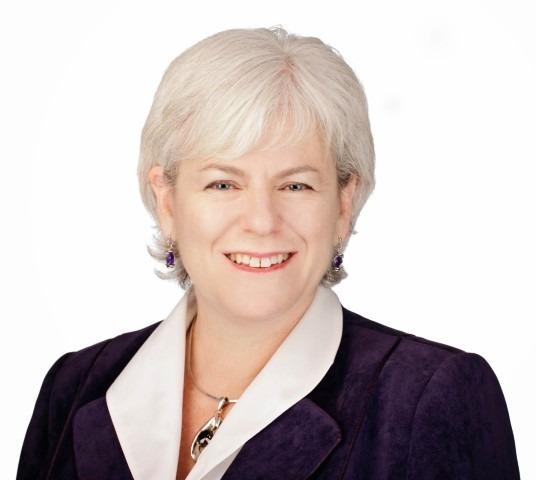
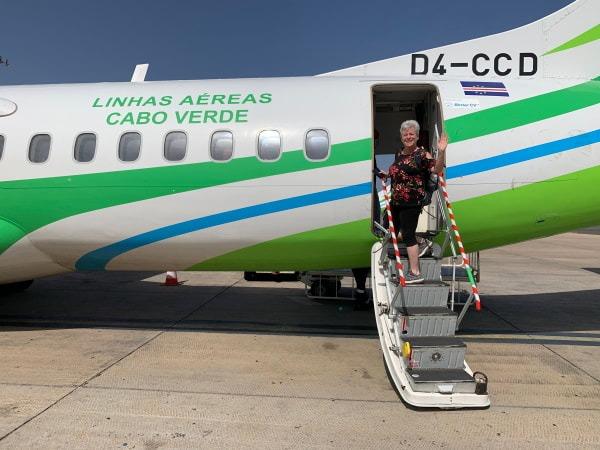
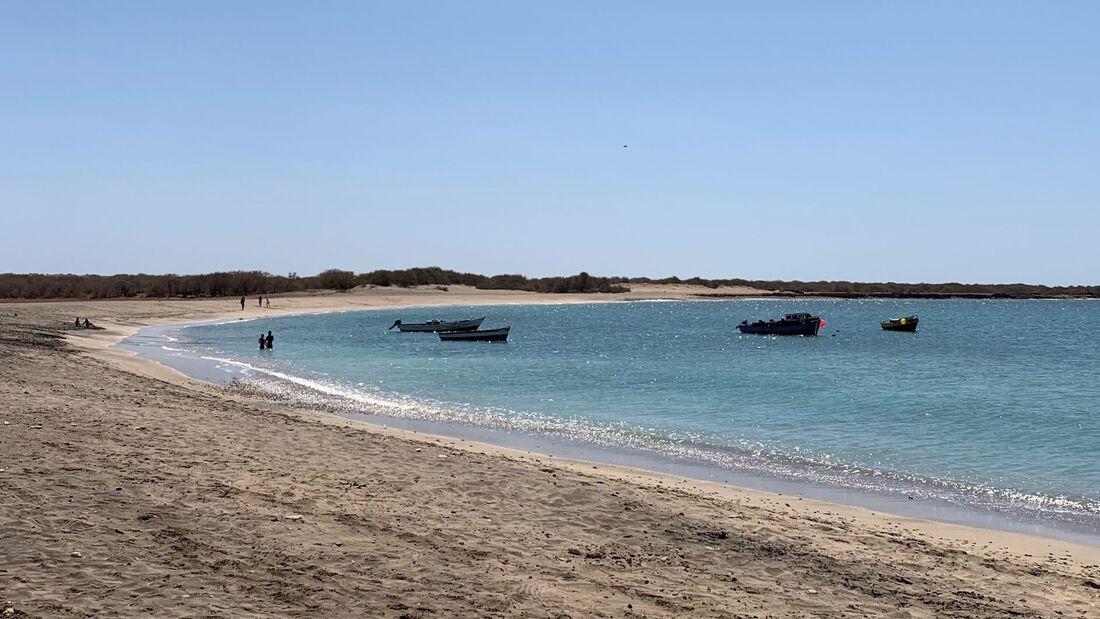
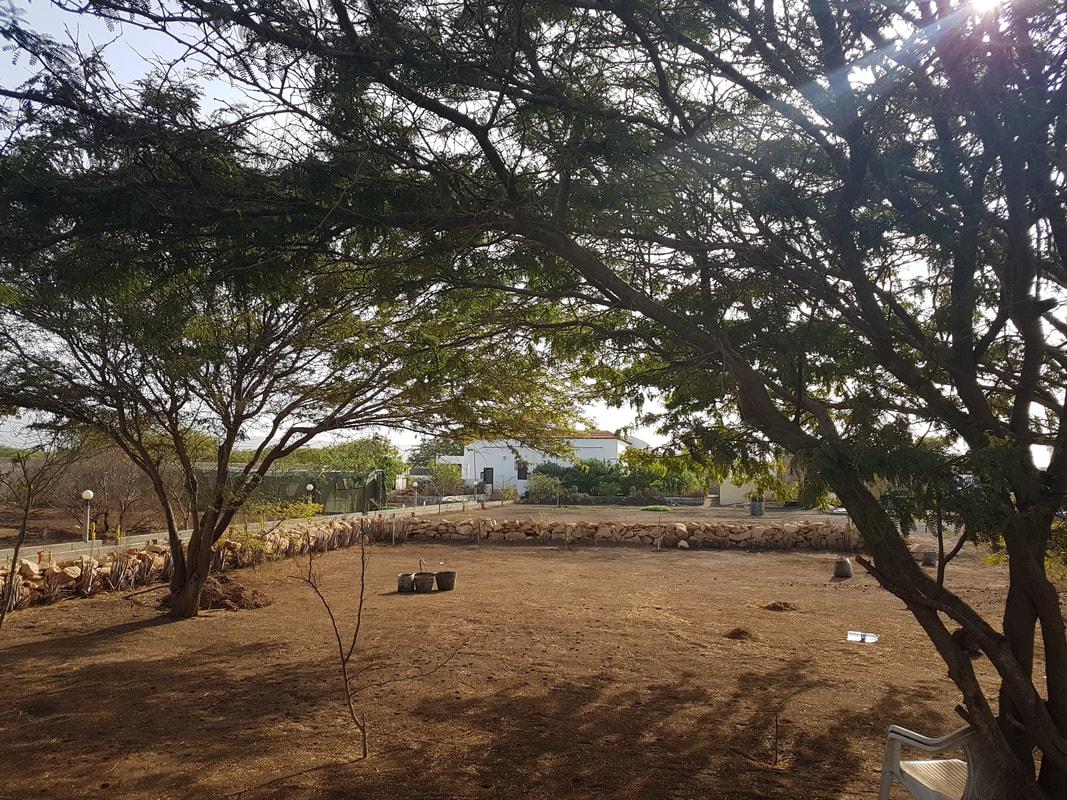
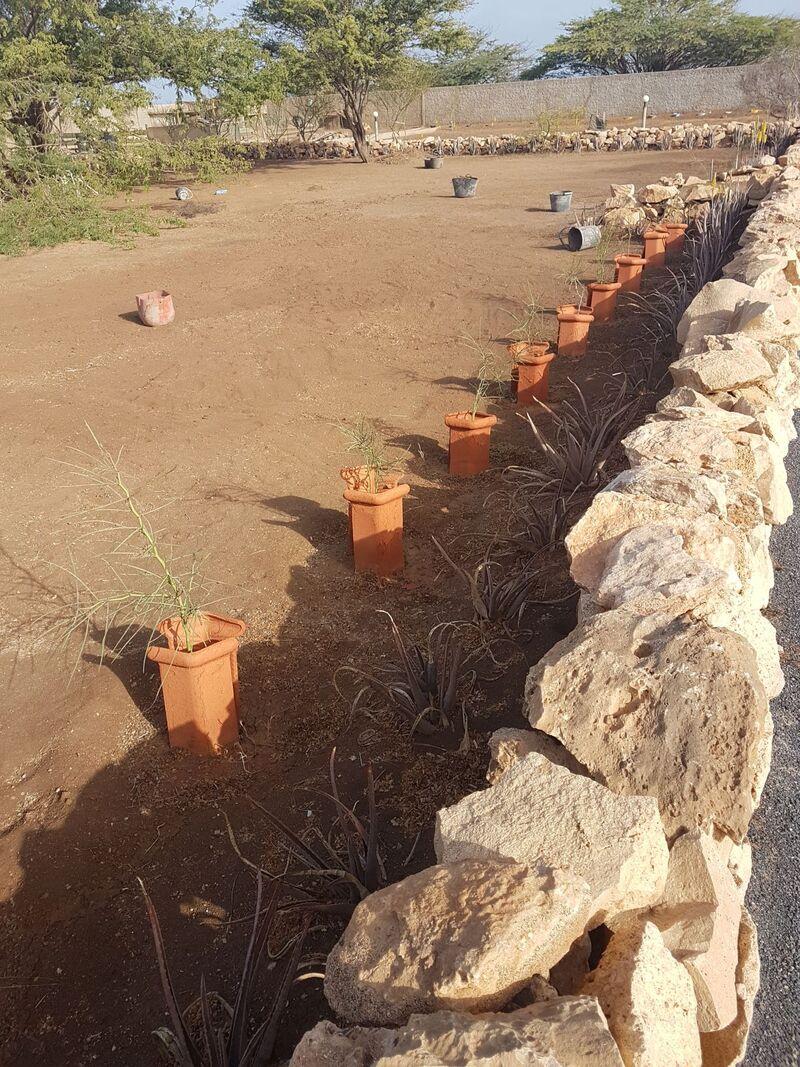
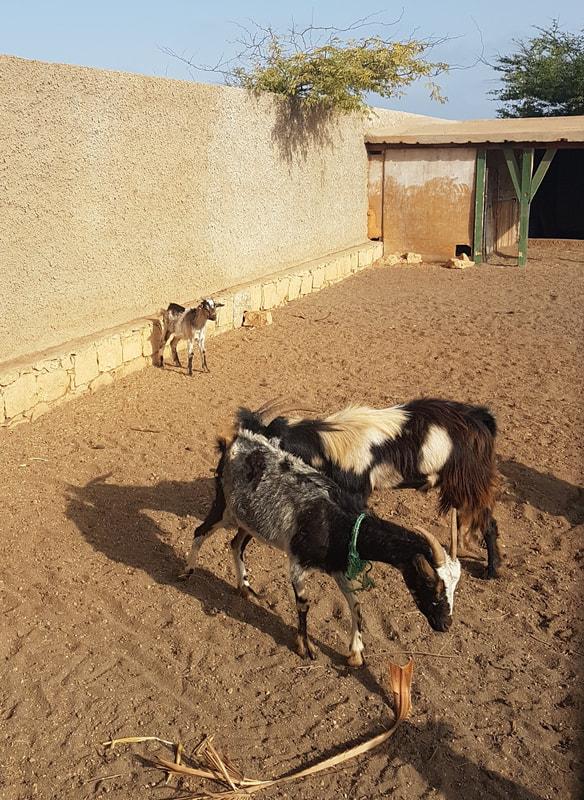
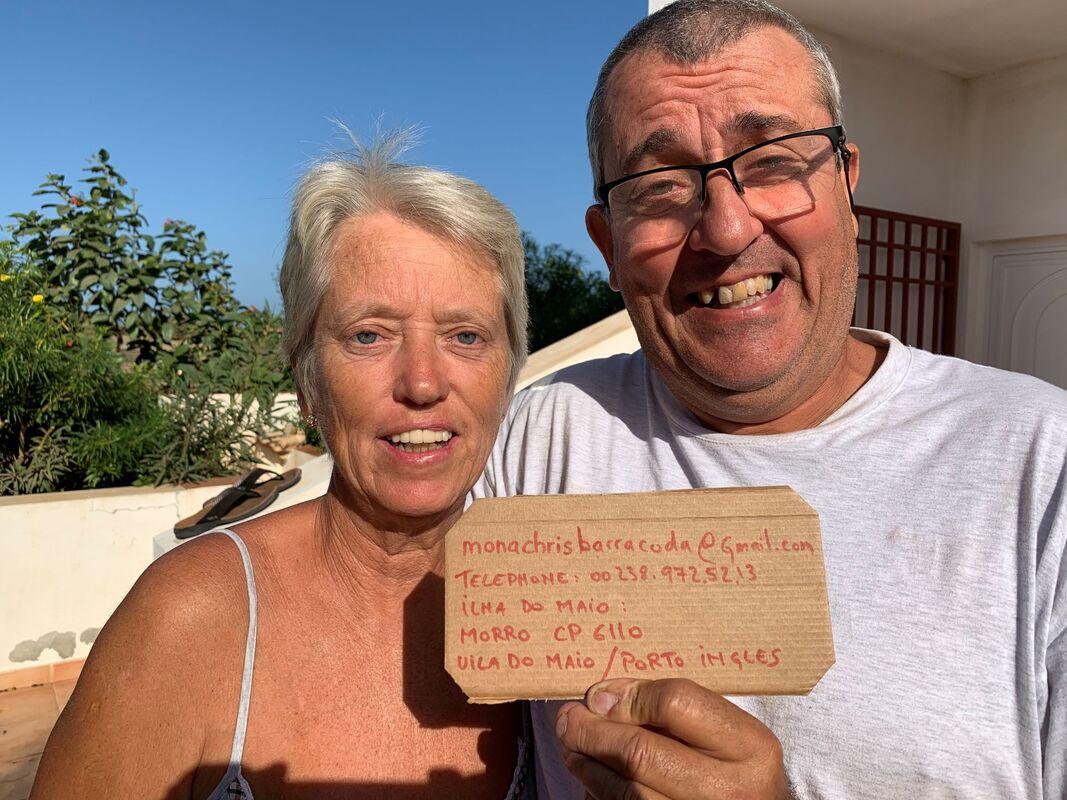
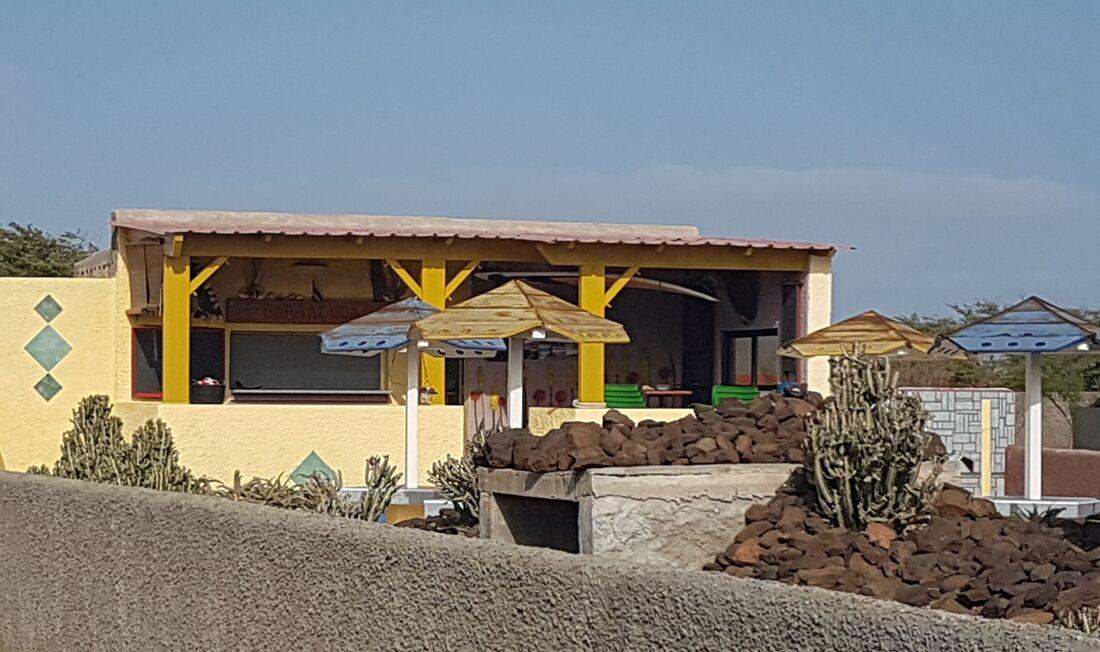
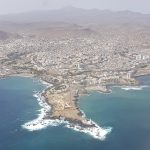
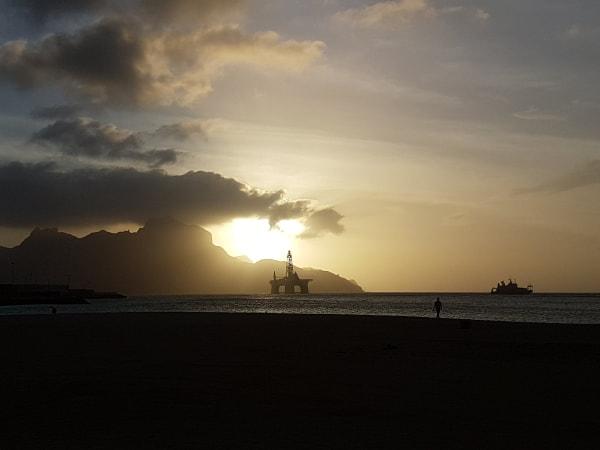

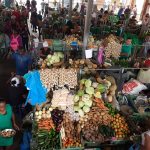
Merci , thanks , pour cette belle histoire de vacance perdue sur le coté ouest de l’île de Maio du cap vert , je vois que vous n’avez rien oublié et surtout bien écrit et romancé . Avons c’est vrai passé de bons moments ensemble sincères , VRAI et respectueux , espère que cela restera dans votre mémoire au plus longtemps possible , pour notre part continuons notre aventure et notre combat avec ce climat de fou et croisons les doigts pour que la pluie arrive cette année . Vous embrasse trés fort , big hug from mona .
PS : toujours pas reçu la recette du pain